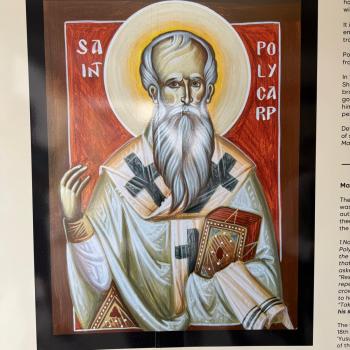BEN: So what this really boils down to for you, is that: 1) you are convinced it is wrong to parse things so kingdom is one thing and church is entirely another (and I agree), and 2) you want kingdom mission to be church based and specifically Christian,and whatever is not an outworking of that is not kingdom mission. 3) you’re insisting that kingdom is people, not just an activity or for that matter a place. I would say that kingdom involves people necessarily, its about the redemption of people obviously, but neither kingdom nor church is simply people. Church happens when two or more are gathered for worship and fellowship and service and God is present with us. An individual is not the church any more than an individual is the kingdom. In short it involves a certain kind of inter-relationship between God, and his people ,which involves God’s activity amongst his people changing them and conforming them to the image of Christ. For example, if we were to ask whether when the youth group gathers to play basketball in the gym, church is happening, I would say no. The purpose of the gathering and the focus of the gathering was not worship, or fellowship, or service– it was not a gathering meant to focus on loving God and neighbor with whole heart. My point— not every gathering of 2 or more Christians is an example of ‘church happening’.
SCOT: Well, most of that is your way of framing things, not mine.
1. Kingdom is an OT and Jewish word for “nation” and “people” governed by a king — a kingdom is a people governed by a king. In a place. Under a law. Etc. My five elements.
2. Most people seem to have a kingdom theory developed on the basis of creation theology and not election, people, nation — and not on the OT’s usage of the term. Frankly, I think most have inherited a meaning from the history of the church and many from Kuyper somehow. I don’t want to deny one bit anything about doing good in the world, but I don’t htink that is what kingdom means in the Bible. It is the redeemed community and in the End it will be the people of God living in God’s world the way God’s people are supposed to live.
3. Kingdom mission is entirely shaped by what kingdom means and I am 100% convinced most people think kingdom mission means doing good in the world for the good of the world. I’m for it but that’s the opposite of what kingdom means in the Bible. Seeking the welfare of the city Of course, but had anyone called that kingdom work/mission good ol’ Jeremiah would have pulled out his dirty cloth and slapped a good one.
4. I don’t say anything about youth groups playing hoops.
BEN: I’m really enjoying this conversation. I think you see more continuity between the way the term kingdom was used during the monarchy and about the monarchy in the OT and the NT usage. I would partially disagree, because the kingdom of God is not a mere continuation of a previous fallen kingdom of any sort, Israel’s or otherwise. It’s a new eschatological thing.
But I had an aha moment on p. 115. What you are really concerned about when people say work for the common good is kingdom work…. and you say NOOOOOO, that’s just good works is precisely what you say near the bottom of the page. Your concern is that somehow people are trying to sacralize good works, or justice activities, and make them more significant than they are, and so make what they are doing seem more important. In other words, you’ve placed a hard line between kingdom work and good works because of the misuse of the term kingdom and justice, and etc. I think this is a mistake. Any good work, which is good and pleasing in the eyes of God is obviously a manifestation of God’s will on earth, even if it is partial and flawed. As such, it is an extension of God priorities, his commandments, his plans, and yes his reign on earth, and so yes truly good works are truly a manifestation of the kingdom come on earth. As you say so eloquently, Jesus is Lord of all, and not just of the church, and his power and love and presence are manifested not just in the church but also outside of it both directly and through Christians. Think for a moment about the parable of the sheep and the goats, a parable about the Kingdom (not just about good works). What does Jesus say? He says that inasmuch as we have failed to visit people in prison failed to feed and cloth people, we have failed to serve and do it to him. Now I find it very difficult to believe that the phrase ‘unto the least of these’ simply means unto fellow Christians. After all, there were not Christians yet, and the church doesn’t get its start before Pentecost really. So….. I agree with you that specifically church work and good works both need to be done but I think they can and ought be seen as on a continuum under the heading of kingdom work…..wherever the King is working, it is kingdom work as he is trying to save the world, not just the church.
SCOT:Well, no, I haven’t make the hard line because of how folks are using terms but because kingdom is a people in the Bible, and yes I have more continuity. Nor do I say a “mere continuation” nor would I but a revolutionary new thing… so I don’t like that reframing brother.. I’ll all for new and Christ and ecclesia etc.
Any good work? Then you have to say Gandhi was doing good work; that a Soviet leader who is evil who creates something good is doing kingdom? No way. Kingdom — I keep saying this but it’s the point I’ve got to make every time this comes up — is a people not just the will of God. It is a people embodying the will of God, and without the people it’s a “mere ethic.”
The least of these my brothers (and sisters): not just folks in prison, though that his good work. The history of interpretation (Johannes Friedrich) shows the ecclesial/missionary view (BB Warfield, eg) has been standard. Mother Teresa seems to have convinced everyone it means doing good for the marginalized of this world. That text refers back to Matt 10:40-42.
We could go back and forth Ben but I think you see what I’m doing. If someone doesn’t buy in on my reading of kingdom in the OT and Josephus then it can mean what many think it means… whereever something good is done. If they buy into that kingdom-nation proposal, and it’s 99% of the OT and Josephus, then I have good evidence.
Calvin on Matt 4:17 (I think), says It used to mean nation and Israel but it can’t meann that now so it must mean redemption. Classic example of draining continuity by gushing on discontinuity.
BEN: O.K. I don’t disagree with your wanting to make this Christ and church centered when it comes to Kingdom, I get that, but I wonder if you have ever looked at that parable in Mt. 25 in Aramaic. If I’m reading it right, ‘my brethren’ is parenthetical…. in other words it reads ‘inasmuch as you (my brethren) have done it unto the least of these, you’ve done it unto me. And this brings me to one other text and then I’m hushing for today. Got to go teach Bible study tonight.
You remember the story about the non-disciple exorcists who are doing their work in Jesus’ name, and the disciples say ‘should we forbid them’? Jesus’ answer is no. It’s no because his work is going on both within and outside the circle of disciples, especially when it’s done in his name. So yes…… Gandhi was sometimes doing things in Jesus’ name when he applied the Sermon on the Mount to oppressive situations in India and South Africa. Read E. Stanley Jone’s book on Gandhi! It is what inspired Martin Luther King to take the non-violent approach to civil rights activism. You might correlate this with what Jesus says to the Samaritan woman in John 4— ‘you Samaritans worship whom you do not know’. Now notice, Jesus doesn’t say they are worshipping a false god. He says they are worshipping the true God in ignorance. Worshipping the Biblical God in ignorance! I mention this because I think it is unwise to draw too narrow a circle around the church and call it Kingdom. It’s not what Jesus would do, in my view.
SCOT:Matt 25 is in Greek, not Aramaic.
There is a singular and notable deficiency in all this: you are studiously avoiding what I do in my book. Construct kingdom’s meaning on the basis of the OT and Josephus. In my view, you have to posit the word radically changed meaning to get where you are. That’s the whole point of my book.
I’m all for Gandhi; he did not do kingdom work; only kingdom people can do kingdom work because kingdom is a people — Israel expanded by church. Gandhi’s ethic was not rooted in God’s grace in Jesus, that is, in the cross and resurrection, so he was not doing Jesus’ sermon teachings. He was practicing non violence. I’m not so sure about John 4. Worshiping ignorance might not be worshiping the true God at all; it’s pointing in the right direction, like Acts 17, but kissing isn’t marriage — if I can dabble in an analogy.
BEN: Not if the Kingdom of God has to do primarily with theocracy, and not fallen substitutes. At no point is the monarchy of Israel called the kingdom of God.
Isn’t the point of studying Mt. 25 to understand exactly what Jesus meant, not what Matthew later meant?
You’re right, I think there are real problems with constructing what Jesus is doing on the basis of monarchy passages in the OT and on Josephus, who knows no teaching of Jesus. John the Baptizer warned us that what was coming was judgment on the fallen Israel and its Temple and etc. on its kingdom! Jesus did not come to reinstitute or continue all that. He just didn’t. He was the fulfillment of the promises and the prophecy, but certain not in the way that was expected. He was the fulfillment of all the institutions of Judaism as well, including the Temple in himself, not in the lost sheep of Israel. And when something is fulfilled it is completed, and over and done with. That doesn’t mean God is finished with Israel. There is of course an already and not yet dimension to this, but the church for sure is not Israel and never was. And Jesus is not merely the son of David, he’s David’s Lord, as he insisted to the debaters in Jerusalem.
And this brings up another point— Jesus is no surrogate or under agent for God like King David, he is God the Son, and so is bringing the theocracy into play, not merely the kingdom of David.
So maybe we do have more serious disagreements than I thought at first. But I’ll keep reading and see what happens next. Its a great read. You write very clearly.
SCOT:Ben I don’t have my book here but I think Solomon’s kingdom is called the kingdom of YHWH, no? I have it in the book anyway.
Yes, of course, which is why I point to Matt 10:40-42; the history of that textual interpretation is one that affirms what I’m saying, that’s why I appeal to that.
The point is that the term “kingdom” has saliency only if it makes sense in that world .. to say it means inbreaking means it has changed meaning. To say Kingdom has come is to play both on continuity turf and to say the Day has now arrived … what we’ve expected has now come to pass. New and old at the same time. I hope we can agree on that.
Fulfilled doesn’t mean over and done with it; that can be an implication at times.
The whole thing about Son of David … vs. Son of God… why? It’s a both and for me: Son of God is royal in the OT. Not sure why you say surrogate. Not a word that is on my plate. “Not merely the kingdom of David”? I surely don’t say that. He’s building on that and taking it all to a new christocentric plane, shaped by life, death and resurrection and exaltation. My point about Kingdom of God is that Jesus is God’s rule vs. monarchy, Ben, so not sure why you are saying that either.
Gotta love biblical studies. No two scholars think alike!













